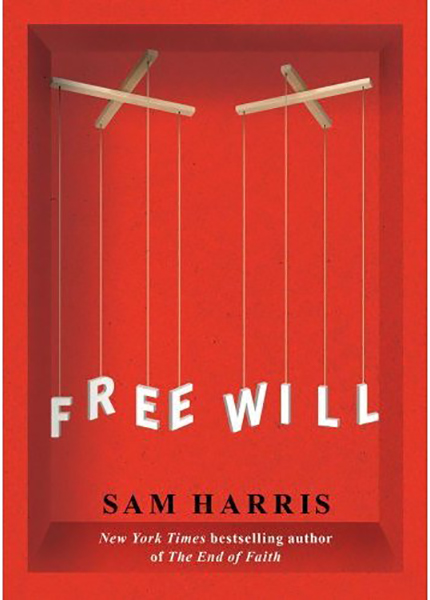The Book in Three Sentences
We do not have the freedom and free will that we think we do. Yes, you can make conscious choices, but everything that makes up those conscious choices (your thoughts, your wants, your desires) is determined by prior causes outside your control. Just because you can do what you want does not mean you have free will because you are not choosing what you want in the first place.
Free Will summary
This is my book summary of Free Will by Sam Harris. My notes are informal and often contain quotes from the book as well as my own thoughts. This summary also includes key lessons and important passages from the book.
- The concept of free will is pervasive in our world.
- “How can we make sense of our lives and hold people accountable for their choices given the unconscious origins of our conscious minds?”
- “We do not have the freedom we think we have… Either our wills are determined by prior causes and we are not responsible for them. Or they are the product of chance and we are not responsible for them.”
- “The intention to do one thing and not another does not originate in consciousness. Rather it appears in consciousness. As does any thought or impulse that might impose it.”
- There are famous studies done with fMRI techniques which show that our brains will indicate the choice we are going to make 700 milliseconds before we are aware that we are going to make the choice. Other studies have found even larger discrepancies of 7-10 seconds.
- You cannot decide your next mental state, thought, or action until it arises. Where is the freedom in that process?
- “There is no question that most, if not all, mental events are the product of physical events. The brain is a physical system entirely beholden to the laws of nature. And there is every reason to believe that changes in its functional state and material structure entirely dictate our thoughts and actions.”
- “Consider what it would actually take to have free will. You would need to be aware of all the factors that determine your thoughts and actions, and you would need to be in complete control of these factors.”
- “We know that determinism in every sense relevant to human behavior is true. Unconscious neural events determine our thoughts and actions, and are themselves determined by prior causes of which we are subjectively unaware.”
- Just because you can do what you want does not mean you have free will. Why? Because you are not consciously choosing what you want. You simply want it. You can’t explain why you want it, but you do. And so choosing to do what you want (or choosing one want over another) does not mean you have free will because your wants have been given to you not determined by you.
- We make a mistake by separating our “free will” from our neural processes. The neural processes that support consciousness and nudge our actions are just as much a part of us as our conscious actions. The machinery that drives our actions is just as real as the actions themselves.
- All sorts of studies in behavior have proven that we often attribute the actions we take to incorrect causes. We reason backwardly and create all sorts of causes for our actions. In this case, Harris is arguing that we don’t merely do this sometimes, but all the time. He says that free will is an illusion and we do not fully understand what really drives our actions.
- This is a discussion of the underlying causes of human behavior. In many cases, these causes are hidden to us.
- Harris acknowledges that, although free will does not exist, we can create a framework for our choices which makes certain outcomes more likely than others. For example, you can remove all candy from your house to reduce the odds of eating sweets. Whether you feel the urge to eat sweets, however, is not something you have control over. Your “wants” simply are. They are not things you control.
- “You can change your life and yourself through effort and discipline. But you have whatever capacity you have for effort and discipline is what you have at this moment. And not a scintilla more. Or less.”
- “You wanted to lose weight for years. Then you REALLY wanted to. What’s the difference? Whatever it is, it’s not a difference you brought into being.”
- This has implications for how we judge criminals and interpret actions. If we understand that it is very possible to be dealt a bad hand in life — bad genetics, bad parents, bad experiences — then we begin to realize that even criminals have a deeper story that influences their actions. In a world like this, crimes, even heinous ones, are not easily attributed to free will and bad ideas. It’s a more compassionate view of our fellow humans. “The urge for retribution depends on our not seeing the underlying causes of human behavior.”
- This doesn’t mean we don’t need a criminal justice system nor do we need to separate dangerous people from society.
- “Not only are we not as free as we think we are, we do not feel as free as we think we do… Thoughts and intentions simply arise in our mind. What else could they do?”
- It is impossible for us to know the causes of our choices and wants.
Reading Suggestions
This is a list of authors, books, and concepts mentioned in Free Will, which might be useful for future reading.
- Daniel Dennett’s writings on philosophy and compatibilism
- Meditations on Violence by Rory Miller
